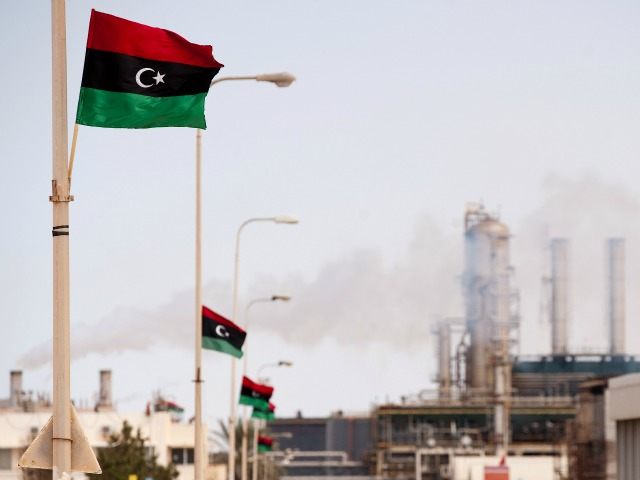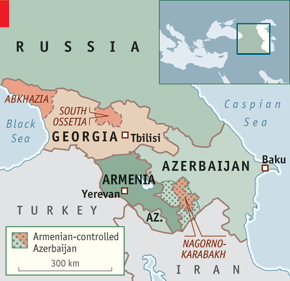[fblike]
 Today’s R&D is brought to you by Prepd, the only software built specifically for extemp. Prepd makes it easy to research, practice, and compete! Visit www.prepd.in to learn more. Like Prepd on Facebook for special info and contests.
Today’s R&D is brought to you by Prepd, the only software built specifically for extemp. Prepd makes it easy to research, practice, and compete! Visit www.prepd.in to learn more. Like Prepd on Facebook for special info and contests.
This R&D provides resources on U.S.-Saudi relations. President Barack Obama is heading to Saudi Arabia today, but does so in an atmosphere of discord after Saudi Arabia threatened to dump $750 billion in U.S. assets if Congress passes a bill that would enable American citizens to sue the kingdom over the September 11 terror attacks. The dispute shines light on the discord in the relationship between the two countries, with the Saudis already skeptical about President Obama’s outreach to Iran during his presidency.
As Obama heads to #SaudiArabia this week, here’s what you need to know about U.S.-Saudi ties https://t.co/5kp4H95iNI pic.twitter.com/iiXxI7Bpmu
— CFR (@CFR_org) April 18, 2016
Barack Obama travels to Saudi Arabia amid tension over 9/11 law https://t.co/Db2SHyxgLv pic.twitter.com/pg1GwEOe2x
— Telegraph News (@TelegraphNews) April 18, 2016
Why does Obama oppose a bill to let 9/11 victims’ families sue Saudi Arabia? https://t.co/XpUrZ07XFv pic.twitter.com/buJ3p6UA2N
— The Atlantic (@TheAtlantic) April 18, 2016






 In 2011, the North Atlantic Treaty Organization (NATO) secured the approval of the United Nations Security Council to intervene in Libya to prevent Muammar Gaddafi from slaughtering civilians. Gaddafi was in the midst of a widespread revolt after he used violence against demonstrators that were inspired by the Arab Spring, which by that point rocked Tunisia and Egypt. However, NATO quickly moved from protecting civilians via no fly zones to regime change and in October 2011, anti-government rebels caught up to Gaddafi and executed him. Although President Obama wanted to avoid another Iraq, that is what transpired in Libya except this time no U.S. forces were committed to postwar reconstruction. Instead, Libya gradually devolved into political in-fighting and civil war and much like Iraq and Syria today, the country is under threat from the Islamic State, which is attempting to establish a foothold in the North African country to strike out at Libya’s neighbors and across the Mediterranean at Europe. Last week, in a speech at the National Defense University in Washington, President Barack Obama said that the biggest mistake of his presidency was not planning the reconstruction of Libya better, but there are some signs that things could improve. For example, the leader of a UN-approved government, Fayez al-Serraj, arrived last week to serve as Libya’s new prime minister and quickly won over some Tripoli militias and the loyalty of the heads of the central bank and national oil company. Still, al-Serraj has a tough road ahead of him to get Libya running smoothly again and he must handle militias, win over opposition legislators, and secure more economic support from the West so that Libya does not become a “Somalia on the Mediterranean” that Western policy analysts most fear.
In 2011, the North Atlantic Treaty Organization (NATO) secured the approval of the United Nations Security Council to intervene in Libya to prevent Muammar Gaddafi from slaughtering civilians. Gaddafi was in the midst of a widespread revolt after he used violence against demonstrators that were inspired by the Arab Spring, which by that point rocked Tunisia and Egypt. However, NATO quickly moved from protecting civilians via no fly zones to regime change and in October 2011, anti-government rebels caught up to Gaddafi and executed him. Although President Obama wanted to avoid another Iraq, that is what transpired in Libya except this time no U.S. forces were committed to postwar reconstruction. Instead, Libya gradually devolved into political in-fighting and civil war and much like Iraq and Syria today, the country is under threat from the Islamic State, which is attempting to establish a foothold in the North African country to strike out at Libya’s neighbors and across the Mediterranean at Europe. Last week, in a speech at the National Defense University in Washington, President Barack Obama said that the biggest mistake of his presidency was not planning the reconstruction of Libya better, but there are some signs that things could improve. For example, the leader of a UN-approved government, Fayez al-Serraj, arrived last week to serve as Libya’s new prime minister and quickly won over some Tripoli militias and the loyalty of the heads of the central bank and national oil company. Still, al-Serraj has a tough road ahead of him to get Libya running smoothly again and he must handle militias, win over opposition legislators, and secure more economic support from the West so that Libya does not become a “Somalia on the Mediterranean” that Western policy analysts most fear.
 s a list of all our old quizzes,
s a list of all our old quizzes,  Last weekend fighting resumed between Armenian separatists and Azerbaijan-backed forces in the disputed region of Nagorno-Karabakh. The remote territory, located within Azerbaijan territory, is largely Armenian in ethnic composition and since 1994 it has been controlled by rebels that wish to detach it from Azerbaijan and make it an independent entity. Azerbaijan has long wished to regain it, but anxiety about how a takeover would be perceived by Armenians in the area, as well as the strong defensive position of separatist forces has prevented it from taking action up to now. Why the current fighting began is still a mystery as both sides accuse the other of taking offensive action first. While it would be easy to dismiss the conflict as a local affair, Turkey and Russia, both of whom are still smarting over a confrontation in Syria last fall, back opposite sides in the conflict, with Turkey casting its lot behind Muslim Azerbaijan and Russia having a defense treaty with Christian Armenia. Although the conflict appeared to be winding down as of the time of this brief, it could flare up again in the near future and create much more instability in Europe’s borderlands.
Last weekend fighting resumed between Armenian separatists and Azerbaijan-backed forces in the disputed region of Nagorno-Karabakh. The remote territory, located within Azerbaijan territory, is largely Armenian in ethnic composition and since 1994 it has been controlled by rebels that wish to detach it from Azerbaijan and make it an independent entity. Azerbaijan has long wished to regain it, but anxiety about how a takeover would be perceived by Armenians in the area, as well as the strong defensive position of separatist forces has prevented it from taking action up to now. Why the current fighting began is still a mystery as both sides accuse the other of taking offensive action first. While it would be easy to dismiss the conflict as a local affair, Turkey and Russia, both of whom are still smarting over a confrontation in Syria last fall, back opposite sides in the conflict, with Turkey casting its lot behind Muslim Azerbaijan and Russia having a defense treaty with Christian Armenia. Although the conflict appeared to be winding down as of the time of this brief, it could flare up again in the near future and create much more instability in Europe’s borderlands.
 Here is today’s premium R&D to accompany
Here is today’s premium R&D to accompany